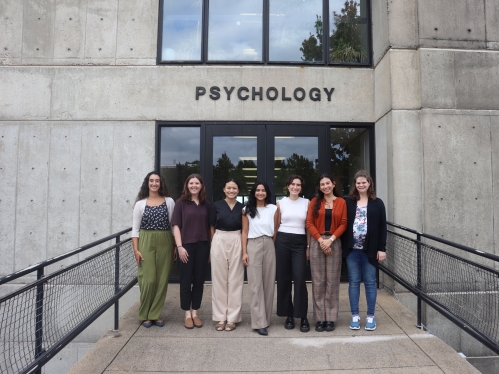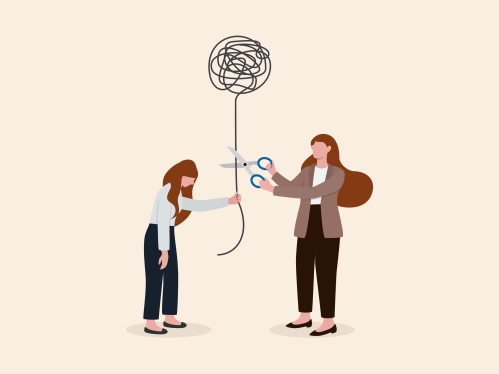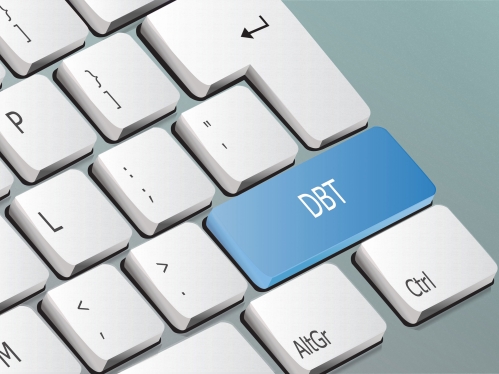
Dialectical Behavior Therapy (DBT) Services
What is DBT-RU?
DBT-RU is a specialty, outpatient training clinic at Rutgers GSAPP focused on the treatment of Borderline Personality Disorder (BPD) and associated conditions. DBT-RU offers treatment to both adults and adolescents and their caregivers.
Suicide is a leading cause of death among all age groups, and notably for individuals ages 10-24 it is the second leading cause of death. Other high-risk behaviors can also be significantly impairing to individuals’ qualities of life, functioning, and relationships, including non-suicidal self-injurious behavior, substance use, eating concerns, and others. DBT-RU's mission is to service the local community by providing affordable, accessible, high-quality and adherent services through our training clinic.
DBT-RU was founded in 2010 by Shireen Rizvi, PhD, ABPP, an international expert in DBT research and training, and a student of Marsha Linehan, PhD, the developer of the treatment. Fall 2024, Lauren Bonavitacola, PsyD, and Liza Pincus, PsyD, began as co-directors of the DBT-RU clinic. Both co-directors are DBT-Linehan Board of Certification, Certified Clinicians and graduates of Rutgers GSAPP and the DBT-RU clinic. Our clinic therapists are advanced doctoral students from the GSAPP clinical psychology program and the Rutgers psychology PhD program.
In line with GSAPP’s core values of commitment to diversity and inclusion and promoting social justice in service to underserved populations, we at DBT-RU are committed to serving clients of all races, gender identities, sexual orientations, and religious beliefs.

Which problems do we treat at DBT-RU?
DBT aims to treat:
- extreme emotion dysregulation
- interpersonal difficulties
- impulsivity
- rigid and inflexible ways of thinking and acting
- deficits in mindfulness (or awareness of what is happening in any given moment, both internally and externally)

Which clinical services do we provide?
DBT-RU is an adherent DBT program, offering all four modes of treatment:
- Weekly individual therapy, including family sessions as needed
- Weekly skills training group for 6-7 months, including caregiver(s) in the adolescent program
- Between-session, brief telephone coaching to foster skills application
- Weekly therapist team consultation for all treating therapists
A full round of DBT treatment (Stage 1) includes a comprehensive intake, 4-6 weeks of pre-treatment orientation, and approximately 6-7 months of group and individual therapy. Ongoing treatment beyond Stage 1 will be determined on a case-by-case basis.

How can I reach out for treatment?
To reach the DBT-RU Clinic, please call or email us and leave a message. Someone from our team will get back to you within the week to answer any questions you may have about our program, and/or begin the process of scheduling an initial evaluation session.
Phone: 848-445-3942
Email: dbtru@gsapp.rutgers.edu
Address:
Center for Psychological Services/DBT-RU
152 Frelinghuysen Road
Piscataway, NJ 08854

Resources
Are you looking for ways to learn and practice your DBT skills? At DBT-RU, we have created quick videos and a card game to help you do so. Check them out here:
- Card game
- Videos
- Biosocial Theory Handout
- Biosocial Theory Handout (in Spanish)
- DBT Adult Crisis Plan
- DBT Adolescent Crisis Plan
- Understanding Dialectics in DBT Handout
For more information about BPD, the National Alliance on Mental Illness (NAMI) provides a wealth of information.
The Association for Behavioral and Cognitive Therapies (ABCT) also has a downloadable fact sheet on BPD and other associated disorders.
To find a certified DBT clinician in your area, the DBT-Linehan Board of Certifications has a directory.
Resources for families and friends:
TARA Association for Personality Disorders
Resources for clinicians interested in DBT training opportunities:
Please note these are informational only. Inclusion of these links should not be considered direct referrals or endorsement of these sites.



